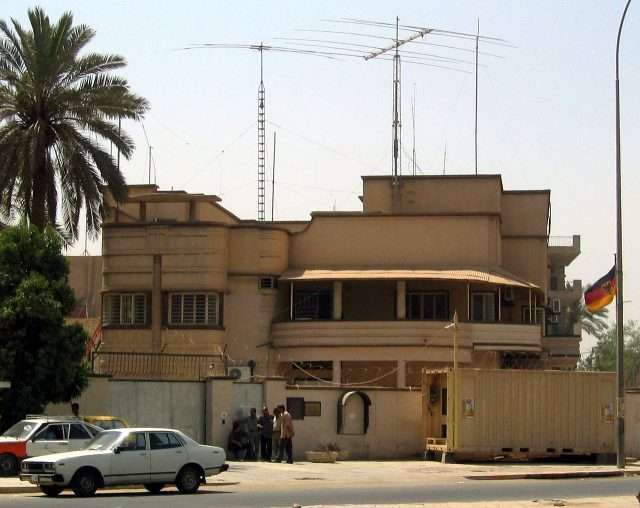Germany confirms its military presence in Iraq

On Wednesday, January 12th, 2022, the new German Government decided to extend by nine months the foreign mission in Iraq of the Bundeswehr until the end of October 2022. At the same time, the German Government discussed some adjustments regarding foreign missions to exclude the possibility of using the Bundeswehr in Syria.
In developing an updated version of the document’s text, the German Foreign Ministry Annalena Baerbock ad the German Defense Ministry Christine Lambrecht played an important role. Berlin agreed on maintaining 500 military personnel in Iraq. Previously, the tasks of the Bundeswehr included supporting the international anti-terrorist mission in the region by monitoring the airspace and military refuelling aircraft in the air – also over Syrian territory.
In the updated draft mandate approved by the cabinet, Syria is no longer mentioned as an operational zone. Foreign Minister Annalena Baerbock and Defense Minister Christine Lambrecht already sent messages to the factions’ leadership in the Bundestag on January 11th, 2022, in connection with the new mandate, emphasizing that Syria was excluded as an area of operations.
In October 2020, Germany decided to reduce the size of its contingent in Iraq by 200 people due to the expiration of the mission of the Tornado reconnaissance aircraft stationed in Jordan. Initially, they were used to monitor Syrian airspace. At this stage, surveillance is mainly carried out with the help of AWACS aircraft radio detection and guidance systems. Except for the territory of NATO countries, such as Turkey, these complexes can only operate in Iraqi or international airspace.
Iraqi Kurdistan President Nechirvan Barzani welcomed Germany’s decision to extend its military mission in Iraq as the Islamic State poses a threat to the region. The Kurdish leader emphasized that “ISIS continues to pose a threat to international peace and security, and constant collective efforts are needed to counter and eradicate terror.”
Last Sunday, January 9th, 2022, German Defense Minister Christina Lambrecht visited her country’s armed forces in Erbil, the capital of Kurdistan, and also met with President Nechirvan Barzani.
Regarding the security situation in Iraq, it should be noted that, during 2021, the Islamic State carried out 257 terrorist attacks in various parts of Iraq, mainly in the disputed territories. According to the ministry, on January 11th, 2022, the Peshmerga Ministry of Kurdistan announced that last year’s terrorist attacks killed 387 people, injured 518 and left 37 missings.
At the same time, according to the ministry, in the disputed areas, most of the attacks occurred due to security gaps due to a lack of cooperation between the peshmerga and the Iraqi army. For instance, last Friday night, peshmerga forces were attacked in the northeast of Mosul. Peshmerga commander Raad Surchi said that this happened in the area of the disputed territories of Bashiqa, where there is a security gap between the positions of the peshmerga, the Iraqi army and Hashd al-Shaabi. It is not yet clear if the Islamic State (IS) carried out the attack. Still, the terrorist group remains a prime suspect as it frequently attacks security forces and civilians in disputed areas.
Last month, a series of Islamic State attacks on Peshmerga and Iraqi forces took place in the disputed territories. After that, Erbil and Baghdad carried out several operations to clear the region of militants.
